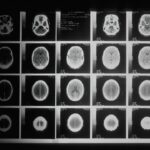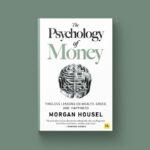Stress is a common experience that affects individuals in various aspects of their lives. It can arise from a variety of sources, such as work, relationships, or financial pressures. When faced with stress, individuals often find themselves having to make important decisions. However, stress can have a significant impact on decision-making abilities, leading to potentially negative outcomes. Therefore, it is crucial to understand the relationship between stress and decision-making in order to make informed choices and mitigate the negative effects of stress.
Key Takeaways
- Stress can have a significant impact on decision-making abilities.
- Chronic stress can impair cognitive functioning and decision-making skills.
- Stress can affect cognitive flexibility and the ability to adapt to changing situations.
- Emotions play a crucial role in decision-making under stress.
- Acute stress can lead to impulsive decision-making and risk-taking behavior.
The Science Behind Stress and Cognitive Functioning
When an individual experiences stress, the body undergoes a physiological response known as the «fight-or-flight» response. This response is triggered by the release of stress hormones, such as cortisol and adrenaline, which prepare the body to either confront or flee from a perceived threat. While this response is essential for survival in acute situations, chronic stress can have detrimental effects on cognitive functioning.
Chronic stress has been found to impair various cognitive processes, including attention, memory, and problem-solving abilities. The constant activation of the stress response can lead to decreased focus and concentration, making it difficult to make clear and rational decisions. Additionally, chronic stress can also lead to increased anxiety and emotional reactivity, further hindering decision-making abilities.
The Effects of Chronic Stress on Decision-Making
Research has shown that chronic stress can have long-term effects on decision-making abilities. A study conducted by Starcke and Brand in 2012 found that individuals who experienced chronic stress were more likely to make risky decisions compared to those who did not experience chronic stress. This suggests that chronic stress can impair judgment and lead to impulsive decision-making.
Chronic stress can also lead to decision fatigue, which refers to the deterioration of decision-making abilities after making a series of choices over an extended period of time. When individuals are constantly under stress, they may become overwhelmed by the number of decisions they have to make, leading to poor decision-making and a decreased ability to weigh the pros and cons of different options.
The Connection between Stress and Cognitive Flexibility
Cognitive flexibility refers to the ability to adapt and shift one’s thinking in response to changing circumstances. It is an essential component of decision-making, as it allows individuals to consider multiple perspectives and alternative solutions. However, stress can impair cognitive flexibility, making it difficult for individuals to think creatively and come up with innovative solutions.
When individuals are under stress, they tend to rely on familiar and automatic responses, rather than considering alternative options. This can lead to a narrow-minded approach to decision-making, where individuals fail to consider all possible outcomes and solutions. Therefore, it is important to recognize the impact of stress on cognitive flexibility and take steps to mitigate its negative effects.
The Role of Emotions in Decision-Making under Stress
Emotions play a significant role in decision-making, especially when individuals are under stress. Stress can heighten emotional reactivity, making individuals more susceptible to making decisions based on their emotions rather than rational thinking. This can lead to impulsive and irrational decision-making, as emotions may cloud judgment and prevent individuals from considering all relevant information.
Managing emotions during high-stress situations is crucial for making sound decisions. One strategy for managing emotions is practicing mindfulness, which involves being aware of one’s thoughts and emotions without judgment. By cultivating mindfulness, individuals can develop the ability to observe their emotions without being overwhelmed by them, allowing for more rational decision-making.
The Impact of Acute Stress on Decision-Making

While chronic stress has been extensively studied in relation to decision-making, acute stress can also have a significant impact on decision-making abilities. Acute stress refers to short-term stressors that individuals encounter in their daily lives, such as a tight deadline or a sudden unexpected event.
Research has shown that acute stress can impair decision-making by increasing impulsivity and decreasing self-control. A study conducted by Porcelli and Delgado in 2017 found that individuals who experienced acute stress were more likely to make impulsive decisions and engage in risky behavior compared to those who did not experience acute stress. This suggests that acute stress can lead to hasty and potentially regrettable decisions.
The Influence of Stress on Risk-Taking Behavior
Stress can have a significant impact on risk-taking behavior. When individuals are under stress, they may be more inclined to take risks in order to alleviate the discomfort or pressure they are experiencing. This can lead to impulsive and potentially harmful decisions, as individuals may prioritize short-term relief over long-term consequences.
Furthermore, stress can also impair individuals’ ability to accurately assess risks and rewards. Research has shown that stress can bias decision-making towards seeking immediate rewards, even if they come with greater risks. This can lead to poor decision-making and potentially negative outcomes.
The Effect of Stress on Long-Term Planning and Goal-Setting
Stress can also have a detrimental effect on long-term planning and goal-setting. When individuals are under chronic or acute stress, their ability to think about the future and set long-term goals may be compromised. Stress can lead to a narrowed focus on immediate concerns, making it difficult to consider the bigger picture and make decisions that align with long-term objectives.
Additionally, stress can also lead to procrastination and avoidance behavior, as individuals may feel overwhelmed by the demands and pressures they are facing. This can further hinder long-term planning and goal-setting, as individuals may struggle to prioritize tasks and allocate resources effectively.
Strategies for Mitigating the Negative Effects of Stress on Decision-Making
There are several strategies that individuals can employ to mitigate the negative effects of stress on decision-making. First and foremost, it is important to prioritize self-care and stress management techniques. This can include engaging in regular exercise, practicing relaxation techniques such as deep breathing or meditation, and ensuring an adequate amount of sleep.
Additionally, seeking social support can also be beneficial in managing stress and improving decision-making. Talking to trusted friends or family members about the challenges and pressures one is facing can provide a fresh perspective and help individuals gain clarity in their decision-making process.
Furthermore, it is important to take breaks and give oneself time to recharge. Engaging in activities that bring joy and relaxation can help alleviate stress and improve cognitive functioning. By taking care of one’s physical and mental well-being, individuals can enhance their decision-making abilities even in high-stress situations.
Understanding the Complex Relationship between Stress and Decision-Making
In conclusion, stress has a significant impact on decision-making abilities. Chronic stress can impair cognitive functioning, leading to poor judgment and impulsive decision-making. Stress can also hinder cognitive flexibility, making it difficult for individuals to consider alternative options and come up with innovative solutions. Additionally, stress can influence risk-taking behavior, leading individuals to make hasty and potentially harmful decisions.
Understanding the complex relationship between stress and decision-making is crucial for making informed choices and mitigating the negative effects of stress. By recognizing the impact of stress on cognitive functioning, individuals can take steps to manage their stress levels and improve their decision-making abilities. Prioritizing self-care, managing emotions, and seeking social support are all strategies that can help individuals navigate high-stress situations and make sound decisions. Ultimately, by recognizing the influence of stress on decision-making and taking proactive measures to mitigate its negative effects, individuals can enhance their overall well-being and achieve better outcomes in their lives.
If you’re interested in improving your cognitive flexibility and problem-solving skills, you might also find our article on «The Power of Divergent Thinking for Creative Problem Solving» insightful. In this article, we explore how divergent thinking can help you approach problems from multiple angles and generate innovative solutions. Check it out here to unlock your creative potential and enhance your decision-making abilities.
FAQs
What is stress?
Stress is a physiological and psychological response to a perceived threat or challenge. It can be caused by various factors such as work, relationships, financial problems, and health issues.
What is decision-making?
Decision-making is the process of choosing between different options or courses of action. It involves evaluating the pros and cons of each option and selecting the one that is most likely to achieve a desired outcome.
What is cognitive flexibility?
Cognitive flexibility is the ability to adapt to changing situations and switch between different tasks or mental processes. It is an important aspect of executive function and is essential for problem-solving, creativity, and learning.
How does stress affect decision-making?
Stress can impair decision-making by reducing cognitive resources such as attention, working memory, and mental flexibility. It can also increase impulsivity and risk-taking behavior, leading to poor choices and negative outcomes.
How does stress affect cognitive flexibility?
Stress can reduce cognitive flexibility by impairing the prefrontal cortex, which is responsible for executive function and decision-making. It can also increase the activity of the amygdala, which is involved in emotional processing and can interfere with cognitive control.
What are some strategies for managing stress?
Strategies for managing stress include exercise, relaxation techniques such as meditation and deep breathing, social support, time management, and seeking professional help if needed. It is important to identify the sources of stress and develop coping mechanisms that work for you.





